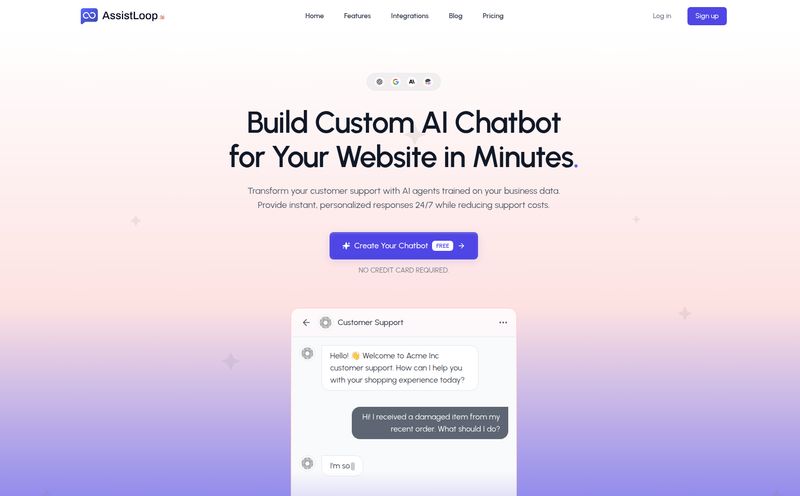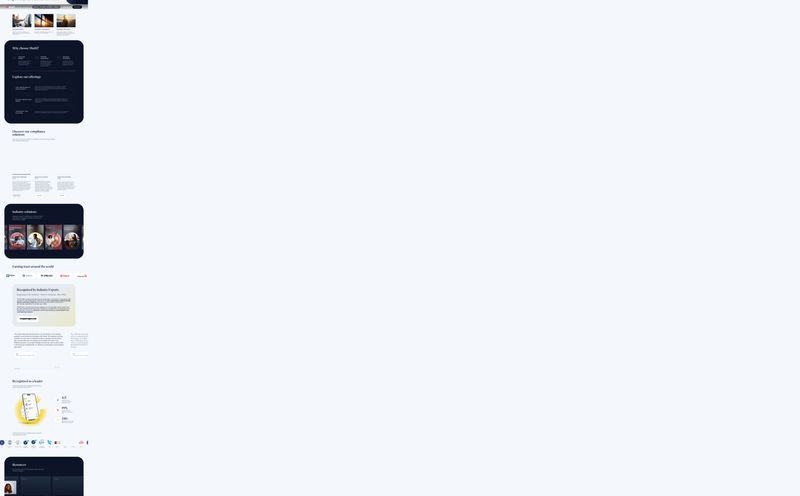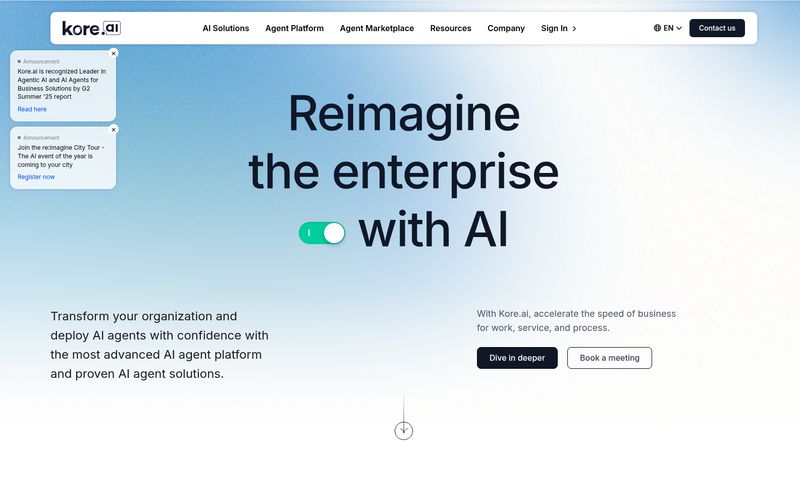What in the World is Thomson Reuters in 2024?
When you hear the name Thomson Reuters, a few things might pop into your head. Maybe you think of the Reuters news tickers you see on TV, or perhaps you imagine imposing, leather-bound legal books in a mahogany-lined office. And you wouldn’t be entirely wrong. That’s definitely part of their legacy.
But holding onto that image is like thinking of Amazon as just an online bookstore. Times have changed. Dramatically.
I’ve been in the SEO and digital strategy game for years, and I’ve seen countless platforms come and go. The ones that stick around are the ones that adapt. And boy, has Thomson Reuters adapted. Today, it’s less of a dusty library and more of a high-tech command center for professionals. Think of it as a digital Swiss Army Knife for people whose jobs depend on having the right information, right now. From lawyers and accountants to global trade managers, this platform offers a suite of tools that are deeply integrated with industry-specific knowledge. Its a massive operation.
A Look Under the Hood at The Core Services
So what does this “Swiss Army Knife” actually have? The company segments its offerings into a few key areas, and each one is a world unto itself. It's not just a single piece of software, but an entire ecosystem.
For the Legal Eagles
This is their bread and butter. For decades, lawyers have relied on Thomson Reuters products like Westlaw for legal research. It’s the gold standard. But now, they're layering generative AI on top of it. This isn't about asking a chatbot for a funny poem; it's about asking it to summarize case law, identify risks in a contract, or draft legal memos based on a vast, private library of verified legal documents. It’s a serious power-up for any legal team.
Taming the Tax Beast
If you've ever felt the soul-crushing weight of corporate tax compliance or planning, you know it's a nightmare of ever-changing rules and regulations. Thomson Reuters provides software and services—like their Checkpoint platform—that aim to automate and simplify this. We're talking about tools for tax planning, preparation, and staying compliant across different jurisdictions. For accounting firms, this isn't just a tool; it’s a lifeline.
Navigating Global Trade and Supply Chains
In a post-pandemic world, “supply chain” is a phrase that gives everyone a little bit of anxiety. Thomson Reuters dives right into that chaos with solutions for global trade management. This helps businesses handle customs, import/export regulations, and all the maddening paperwork that comes with moving goods across borders. It’s a niche, but for a global company, it’s absolutely critical.
The Risk and Fraud Watchdogs
They also have a whole division dedicated to risk, fraud, and investigations. This is the cloak-and-dagger stuff: tools for due diligence, anti-money laundering (AML) checks, and fraud detection. It's designed for financial institutions and corporations that need to vet who they’re doing business with and protect themselves from financial crime.

Visit Thomson Reuters
The AI in the Room: Let's Talk About CoCounsel
Okay, let's get to the flashy new thing. Every company on the planet is slapping an “AI-powered” label on their products, but Thomson Reuters is making a very specific and bold claim with CoCounsel. They call it a “professional-grade GenAI assistant.”
What does that mean? From what I can gather, it’s about reliability. While a general-purpose AI like ChatGPT pulls its information from the wild, wild west of the public internet (with all its inaccuracies and biases), CoCounsel is trained on Thomson Reuters' massive, private, and meticulously curated databases of legal, tax, and news content. It’s like the difference between asking a random person on the street for legal advice versus asking a seasoned lawyer who has access to the world’s best library.
They’re positioning it to help with high-value work: drafting documents, performing research in minutes that used to take hours, and serving up insights that are backed by verifiable sources. This is the kind of stuff that gives a company a real competitive edge, not just a fun new toy.
The Good, The Bad, and The Complicated
No tool is perfect, and a platform this massive is bound to have its trade-offs. After digging through their materials and talking to a few people in the industry, here’s my take.
The Advantages
First off, the sheer comprehensiveness is staggering. The data and expertise packed into these tools are, frankly, industry-leading. You're not just buying software; you're buying decades of curated information and know-how. The integration of generative AI is also a massive plus, putting them at the forefront of the technological curve in some very traditional industries. You get the sense that their solutions are built by people who actually understand the professions they're serving.
The Potential Downsides
On the flip side, this power comes at a cost. Let's not beat around the bush: Thomson Reuters is expensive. It’s an enterprise solution, and the pricing reflects that. For a small business or a solo practitioner, it might be out of reach. Another issue can be the sheer volume of information. It can be overwhelming. Some have mentioned a steep learning curve for certain products, which means you have to invest time in training, not just money. You can’t just log in and expect to be a power user in an hour.
The All-Important Question of Price
So, how much does it cost? Good luck finding a pricing page. And that's not a criticism, just a fact of life with enterprise software.
You won't find a neat little table with Bronze, Silver, and Gold tiers. Pricing for Thomson Reuters products is almost always custom and quote-based. It will depend on:
- The specific products you need.
- The size of your company or firm.
- The number of users.
- The level of support and training required.
To get a price, you'll need to contact their sales team and get a demo. Be prepared to discuss your business needs in detail. This is a serious investment, not an impulse buy.
Is Thomson Reuters the Right Move for Your Business?
So, who is this for?
In my opinion, Thomson Reuters is built for professionals and organizations where the cost of being wrong is incredibly high. We’re talking about law firms handling multi-million dollar cases, global corporations navigating complex trade laws, and accounting firms managing the finances of huge enterprises. For them, the investment is a form of insurance. The accuracy, depth, and efficiency the platform provides can easily outweigh its significant cost.
Who is it not for? Probably the scrappy startup, the solo blogger, or the small mom-and-pop shop. If you're on a tight budget and your need for hyper-accurate, legally-vetted information is minimal, there are likely more affordable, if less powerful, solutions out there. This is a heavy-duty tool for heavy-duty work.
Frequently Asked Questions about Thomson Reuters
- 1. Is Thomson Reuters just a news company?
- No, that's a common misconception. While they own the renowned Reuters news agency, a huge part of their business is providing specialized software, data, and AI-powered tools for legal, tax, accounting, and trade professionals.
- 2. What is CoCounsel?
- CoCounsel is Thomson Reuters' generative AI assistant. Unlike general AI tools, it's trained on their vast proprietary database of professional content, making it a highly reliable tool for tasks like legal research, document drafting, and analysis.
- 3. How much does Thomson Reuters cost?
- There is no public pricing. It's an enterprise-level platform, and pricing is customized based on your specific needs, company size, and the products you choose. You have to contact them for a quote.
- 4. Is Thomson Reuters difficult to use?
- Because the platform is so comprehensive, some products can have a learning curve. It's powerful software designed for complex tasks, so some training might be required to use it to its full potential.
- 5. Who are the main competitors of Thomson Reuters?
- They compete with different companies in different sectors. In legal tech, they go up against companies like LexisNexis. In financial and risk data, they compete with Bloomberg and other data providers. It really depends on the specific product.
Final Thoughts
In a world flooded with cheap information and quick answers, Thomson Reuters is betting on trust and authority. They're not trying to be the fastest or the cheapest. They're trying to be the most correct. By integrating cutting-edge AI with their legendary archives of expert content, they've created a formidable platform. It’s not for everyone, and it certainly isn't for every budget. But for the high-stakes professional who needs an ironclad source of truth, it remains one of the most powerful players in the game.



